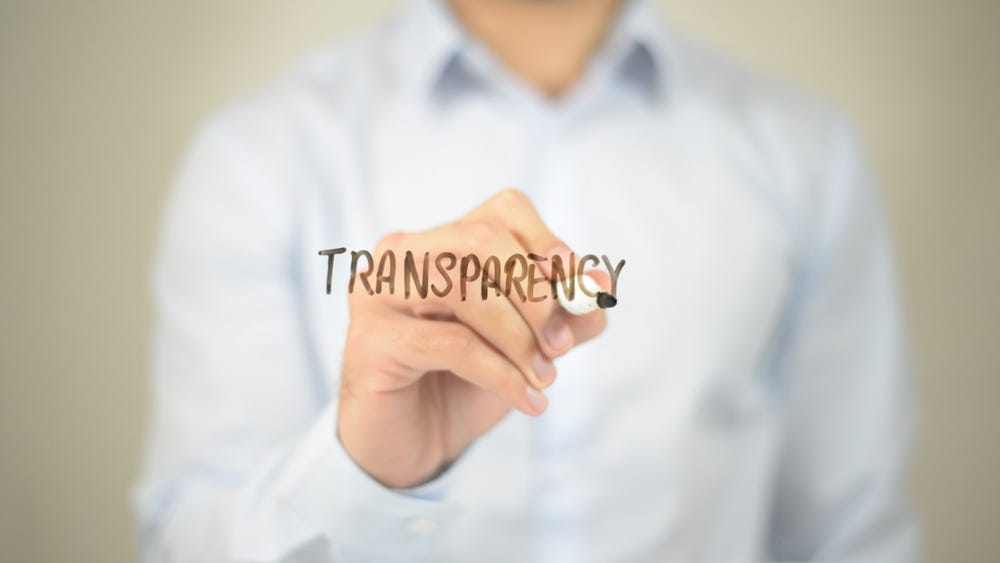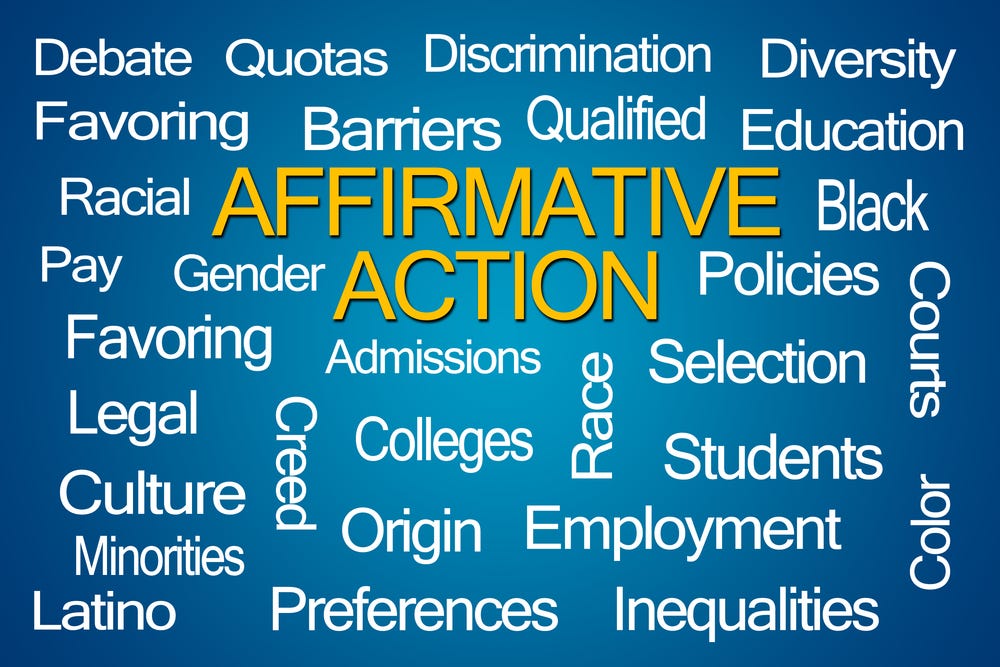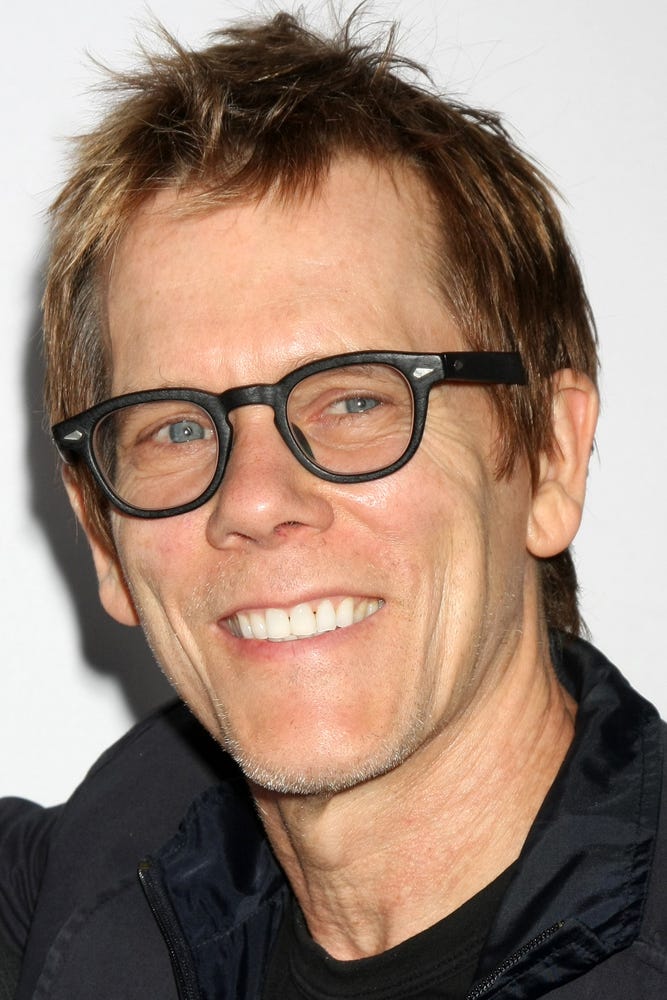E-Pluribus | January 28, 2022
The ACLU is at it again, a reckoning on affirmative action, and free expression and... Kevin Bacon?
A round up of the latest and best writing and musings on the rise of illiberalism in the public discourse:
Zaid Jilani: Progressives Against Transparency
The ACLU continues to drift from its stated principles of individual rights and protection from government overreach with its latest public position on public school curricula, writes Zaid Jilani at City Journal. If the government is going to compel attendance at public schools, Jilani says, parents should have access to (and arguably some level of control over) what their children are being taught. The ACLU, however, is not on board.
[I]t shouldn’t be particularly surprising that the Democrats are resisting public school transparency. What’s more surprising is that the American Civil Liberties Union decided to join them in taking this position. The ACLU wrote on Twitter that the curriculum transparency bills are “are just thinly veiled attempts at chilling teachers and students from learning and talking about race and gender in schools.”
The ACLU has long been known for its principled advocacy on behalf of individual rights and government accountability. But during the Donald Trump years, it became an increasingly partisan organization. […]
With a new constituency in hand, the ACLU has come under pressure to behave differently on various issues—and school transparency is one of them. In the past, ACLU state affiliates have used records-request laws to investigate school curricula and practices, arguing that government institutions should be accountable to the public. In 2013, for example, the ACLU of Nevada “requested the sex education policies and curriculum from each of Nevada’s 17 counties.” A few years later, the ACLU of Kentucky used the state’s open-records act to send “requests to all of Kentucky’s 173 school districts seeking policies and curriculum for ‘Bible Literacy’ courses.” When the ACLU of Alabama discovered sex segregation in the Mobile County School System, it used the Alabama Open Records Act to demand that the “school district make public any and all documents relating to sex segregation in Mobile County schools” over two years.
[…]
When the ACLU was demanding transparency about issues like religious instruction or sex education, it didn’t need to choose between government accountability and progressive social revolution. But the modern ACLU worries that greater government transparency may prevent “teachers and students from learning and talking about race and gender in schools”—by which it really means learning and talking about race and gender in a way that the new progressives approve.
By opposing transparency, progressives, the ACLU among them, may have made a tactical mistake. Public schools are government institutions paid for by taxpayers; with few alternatives, most parents are compelled to send their children there. It’s hard to argue that curricula should be kept secret. Some states, like Ohio, already have laws that allow parents to request instruction materials, reading lists, and curricula. To argue that schools can’t teach kids certain material unless it’s kept secret is to concede that the material wouldn’t withstand public scrutiny.
Read it all here.
Jay Caspian Kang: It’s Time for an Honest Conversation About Affirmative Action
Jay Caspian Kang writes at the New York Times about affirmative action at Harvard University, how it actually function, what its goals are, and what alternatives might look like. Kang notes that at least part of the problem hinges on “diversity” and what kind of diversity is really being (or not being) achieved.
What do “diversity” and “equity” really mean, then, at an institution that has more than three times as many kids from the top 1 percent as from the bottom 20?
The browning of these elite institutions should be seen as progress on its own, and it would be harmful if these trends were suddenly reversed. But to what extent is all this just window dressing? Elite schools in liberal cities, whether they are private elementary schools or the Ivy League schools, do not populate their websites with all kinds of faces out of some heartfelt desire to contribute to an equitable society. Rather, they push diversity because they know their customers — the students and their parents — want it. Plus, they couldn’t get away with being majority white or even white and Asian without attracting a great deal of scrutiny.
The impending Supreme Court decision will change none of this. Schools like Harvard that can fill their incoming freshman class many times over with top-tier applicants of every race are likely to maintain their diversity levels, more or less.
Over the past two decades, there’s also been a quiet but fierce argument over who, exactly, constitutes the Black and Latino student populations at elite colleges. At a Harvard Black alumni gathering in 2004, Henry Louis Gates Jr. and the late Lani Guinier, professors at the school, noted that perhaps as many as two-thirds of Harvard’s Black students were first- or second-generation immigrants from Africa or the Caribbean or the children of biracial couples.
This is an extremely fraught conversation to have because it asks a person to rank Black people in terms of oppression and could encourage schools to enact an even more specific and potentially xenophobic set of hierarchies. Black immigrants appear to be overrepresented at elite colleges when compared with African Americans who have descended from slavery. This, of course, is not the fault of Black immigrants who attend these schools, but rather the schools themselves, who have turned college admissions into a brutal, zero-sum game in which each minority applicant must also double as a racial statistic.
“I just want people to be honest enough to talk about it,” Gates said in 2004. “What are the implications of this?”
Read it all.
Talia Barnes: Six degrees of offensive speech: At what cost will colleges avoid conflict?
Freedom of association may be considered the red-headed stepchild of the Constitution as laws seeking to bring fairness to society limit the choices businesses and individuals. The Foundation for Individual Rights in Education's Talia Barnes says that a recent incident at Emory Law School shows the danger of guilt by association (or even potential association!) when it comes to speech and the free exchange of ideas, particularly in an educational setting.
Bad arguments beget bad policies, which beget bad arguments, and so forth. Six degrees of separation, the idea that every person is connected to every other person through six or fewer social links, is often invoked in jest by those who’d like to claim closeness to famous historical figures or celebrities. However, the theory becomes less humorous when it’s used not to connect your Aunt Linda to Kevin Bacon, but to connect innocuous speech to “dangerous” speech, and confer guilt by association. Those who hold the absence of offense as their primary virtue may find it difficult to resist using six-degrees-of-separation-style rationalizations to label even the most benign speech potentially dangerous. After all, even relatively tame speech might lead to more speech, which might lead to more speech, and more speech . . . that somebody finds distasteful.
By this logic, speech supportive of free expression is most troubling of all. It opens the floodgates to a whole slew of unsavory thoughts and unorthodox attitudes, sure to provoke a list of uncomfortable side-effects long enough to put a prescription drug warning-label to shame.
But no one would really impose policy built on this paranoid style of reasoning, right? Unfortunately, what sounds like a rationale limited to a poorly-written movie villain is the very argument used by the Emory Law Student Bar Association to deny recognition to Emory Free Speech Forum, a student organization dedicated to — drumroll, please — freedom of speech.
Though the Emory Free Speech Forum satisfied all criteria for recognition, the Emory SBA rejected the group’s application, claiming that (hypothetical) discussions “will likely give rise to a precarious environment . . . where the conversation might very easily devolve.”
Like MICA Provost Bogen, who appealed to “respect” to justify disciplining speech, the SBA appealed to “safety,” claiming, “There are no apparent safeguards in place to prevent potential and real harm that could result from these discussions.”
Read the whole thing.
Around Twitter
A short, fun thread from Wasley Yang on “Calvinball”, which, according to Wikidot is “is a game that you never play the same way twice. Anyone can add a rule, and not all parties must agree for a change to be implemented.”
Via the Foundation for Individual Rights in Education, a story out the University of Illinois:
These tweets from EJ Dionne of the Washington Post and Andrew Sullivan illustrate the vast gulf in perceptions of how public education should function:
Finally, a thought from Shadi Hamid on “critical theory” advocates:










